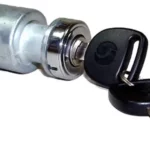For discerning drivers seeking optimal performance and protection for their vehicles, Liqui Moly and Motul stand out as two highly regarded oil brands. Each boasts a rich history of innovation and a commitment to delivering superior lubrication solutions. Whether you’re a seasoned car enthusiast or simply value the well-being of your ride, understanding the nuances between these two brands can empower you to make informed decisions for your specific automotive needs.In this comprehensive guide, we’ll delve into a side-by-side comparison of Liqui Moly and Motul, exploring their respective strengths and differences. From the intricacies of oil additives to the impact of viscosity, we’ll provide a detailed analysis to assist you in choosing the optimal oil for your vehicle’s unique requirements. Furthermore, we’ll shed light on the significance of certifications and approvals, ensuring that you select oils that meet the highest quality standards and are compatible with your vehicle’s specifications. Last but not least, we’ll address the cost factor, providing insights to help you maximize value while making this crucial investment in your vehicle’s longevity and performance.
Oil Additives: What Do Liqui Moly and Motul Offer?
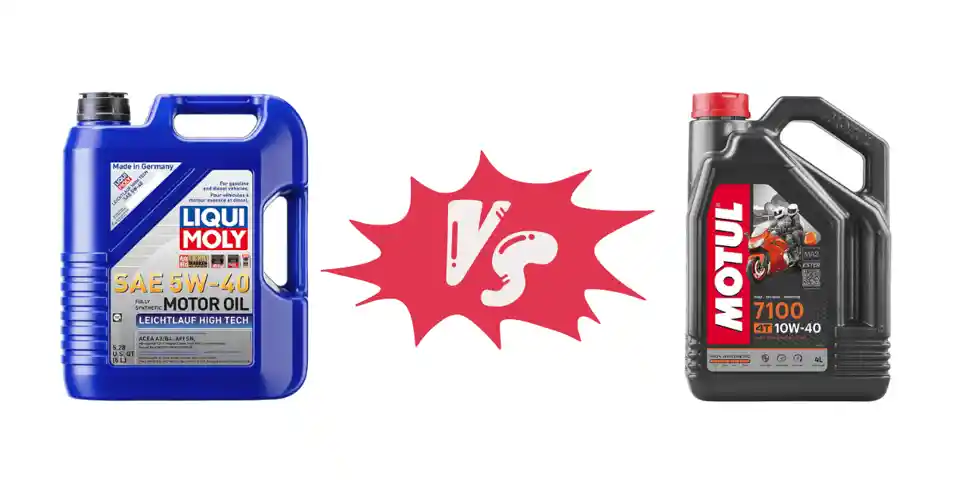
When it comes to oil additives, Liqui Moly and Motul stand out as two of the most renowned brands in the industry. Both companies offer a comprehensive range of additives designed to enhance the performance and longevity of your engine. Liqui Moly, known for its German engineering, emphasizes the use of high-quality base oils and advanced additive technologies to create products that meet the demands of modern engines. Motul, on the other hand, has a strong focus on motorsport and leverages its racing experience to develop innovative additives that push the boundaries of performance. Exploring the offerings of these two brands will help you make informed choices about the best oil additives for your vehicle’s specific needs.
Common additives used by both brands
Liqui Moly and Motul, renowned names in the automotive industry, offer a diverse range of oil additives. Understanding their individual offerings can help you make informed decisions for your vehicle. Both brands commonly use additives that enhance engine performance, reduce friction, and protect against wear and tear. However, they do have unique additives that set them apart. Liqui Moly’s Cera Tec, an advanced ceramic additive, reduces friction and improves engine efficiency. Motul’s Ester Core technology, on the other hand, provides exceptional wear protection and extreme pressure resistance. Whether you’re a meticulous car enthusiast or simply want to ensure your vehicle’s optimal performance, exploring the specific additives offered by Liqui Moly and Motul can help you make the right choice for your needs.
Unique additives offered by each brand
When comparing oil additives, Liqui Moly and Motul stand out as two of the most reputable brands in the industry. Both companies offer a comprehensive range of additives designed to enhance the performance and longevity of your engine. Common additives used by both brands include detergents, dispersants, anti-wear agents, and friction modifiers. These additives help to keep your engine clean, prevent sludge buildup, reduce wear and tear, and improve fuel efficiency.
In addition to these common additives, each brand also offers unique additives that set them apart from the competition. For example, Liqui Moly’s Cera Tec additive contains ceramic particles that help to reduce friction and wear, while Motul’s X-Clean additive is specifically designed to clean and protect engines from harmful deposits.
Viscosity and Performance: A Detailed Comparison
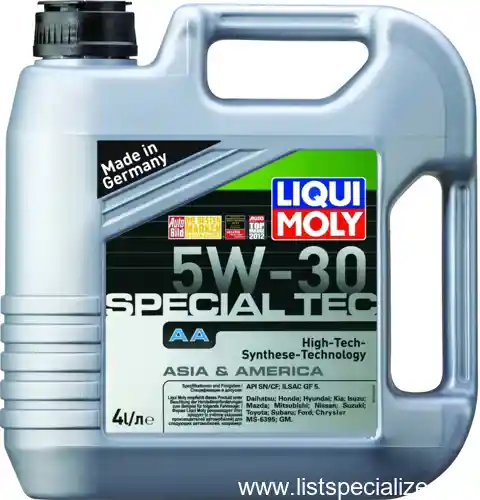
Delving deeper into the realm of oil performance, we turn our attention to the fascinating world of viscosity. Viscosity, a crucial property of any oil, governs its resistance to flow. In the case of engine oils, viscosity plays a pivotal role in determining their ability to protect your vehicle’s engine under varying operating conditions. When it comes to liqui moly vs motul, understanding the viscosity differences between their oils is essential for making an informed decision about which one suits your specific needs. By exploring the intricacies of viscosity and its impact on engine performance, you’ll be better equipped to choose the oil that will keep your engine running smoothly for miles to come.
Understanding viscosity and its impact on performance
Liqui Moly and Motul, two key players in the automotive industry, are renowned for their exceptional oil offerings. However, when it comes to viscosity and its influence on performance, these two brands exhibit distinct characteristics. Viscosity, a measure of how easily oil flows, plays a crucial role in determining how your engine operates under varied conditions. Higher viscosity oils flow less easily, providing better protection against wear and tear, but may hinder performance at low temperatures. Conversely, lower viscosity oils flow more freely, minimizing resistance and enhancing fuel economy, yet potentially compromising protection at higher temperatures. Understanding these differences and the impact they have on your driving experience is essential for selecting the right oil for your specific needs and climatic conditions. Both Liqui Moly and Motul offer a diverse range of viscosity grades to cater to various driving styles and environmental demands, empowering you to make an informed decision that optimizes both performance and engine longevity.
How Liqui Moly and Motul’s oils differ in viscosity
Viscosity plays a crucial role in the performance of your engine oil. It represents the oil’s resistance to flow, which directly impacts its ability to protect your engine. Liqui Moly and Motul offer oils with varying viscosities, tailoring them to specific engine requirements. Lower viscosity oils, such as 0W-20 or 5W-30, flow more easily at low temperatures, providing better cold-start protection and reduced engine wear during startup. Higher viscosity oils, like 10W-40 or 15W-50, offer enhanced protection at higher temperatures, making them suitable for high-performance engines or extreme operating conditions. Understanding the viscosity requirements of your engine and selecting the appropriate oil from Liqui Moly or Motul’s range will ensure optimal performance and longevity for your vehicle.
Performance implications based on viscosity differences
When it comes to viscosity and performance, Liqui Moly and Motul oils exhibit distinct characteristics. Viscosity, measured in SAE grades, indicates an oil’s resistance to flow. Higher viscosity oils are thicker and provide better protection under extreme pressure and high temperatures, making them suitable for heavy-duty applications. Conversely, lower viscosity oils flow more easily, reducing friction and improving fuel efficiency, which is ideal for everyday driving. Liqui Moly offers a wide range of viscosities, from low to high, catering to different driving conditions and engine requirements. Motul, known for its performance-oriented oils, focuses on higher viscosity grades suitable for high-performance engines and demanding driving styles. Understanding the viscosity needs of your engine and driving habits is crucial for choosing the optimal oil for your vehicle.
Synthetic vs. Mineral-Based: Exploring the Pros and Cons
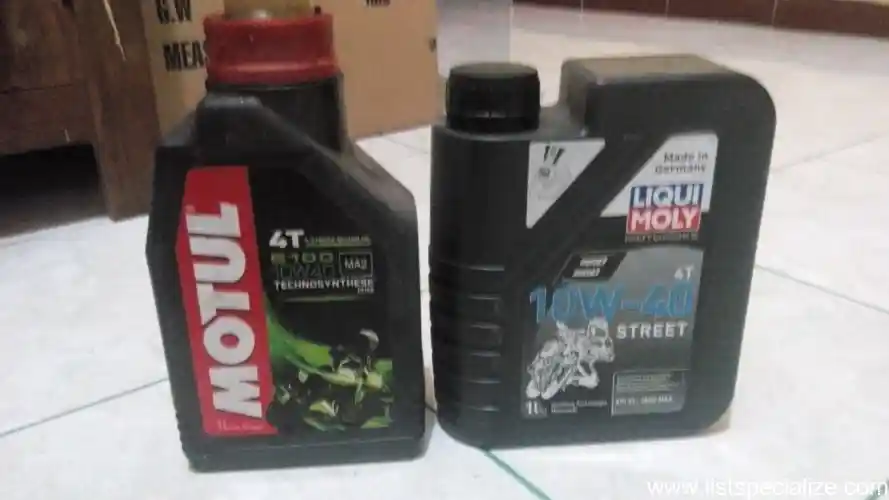
Synthetic and mineral-based oils have their own distinct advantages and disadvantages, and choosing the right one for your vehicle is essential. Synthetic oils, crafted through complex chemical processes, offer superior protection and performance compared to their mineral-based counterparts. They boast exceptional resistance to extreme temperatures, reducing wear and tear on your engine. Moreover, they maintain their viscosity better over time, ensuring consistent performance even in demanding conditions. On the downside, synthetic oils tend to be more expensive than mineral-based oils. In contrast, mineral-based oils are derived from crude oil and are generally more affordable. While they provide adequate lubrication, they tend to break down faster under extreme temperatures and may require more frequent changes. Ultimately, the choice between synthetic and mineral-based oil depends on your driving habits, climate conditions, and budget.
Benefits and drawbacks of synthetic oils
When it comes to selecting the best oil for your vehicle, understanding the distinctions between synthetic and mineral-based oils is crucial. Synthetic oils, engineered from artificially created chemical compounds, offer superior performance compared to their mineral-based counterparts. They boast enhanced resistance to thermal breakdown, oxidation, and viscosity changes, ensuring optimal lubrication even under extreme operating conditions. On the other hand, mineral-based oils, derived from refined crude oil, provide adequate lubrication but may not withstand extreme temperatures or prolonged use as effectively as synthetic oils. Their lower cost makes them a budget-friendly option, but they may require more frequent changes. Ultimately, the choice between synthetic and mineral-based oil depends on your driving habits, vehicle requirements, and budget.
Advantages and disadvantages of mineral-based oils
When it comes to choosing the right oil for your vehicle, understanding the differences between synthetic and mineral-based oils is crucial. Synthetic oils are engineered using advanced chemistry, providing superior protection and performance compared to mineral-based oils. They excel in extreme temperatures, offer reduced friction and wear, and extend oil change intervals, ultimately safeguarding your engine’s health and longevity. On the other hand, mineral-based oils, derived from crude oil, are more conventional and less refined. While they provide adequate lubrication, they may not offer the same level of protection and performance as their synthetic counterparts. The choice between synthetic and mineral-based oils depends on your driving habits, vehicle requirements, and budget. If you demand top-notch engine protection and extended performance, synthetic oils are the way to go. However, if you’re looking for a more budget-friendly option for everyday driving, mineral-based oils can suffice.
How to choose the right oil type for your specific needs
When it comes to synthetic vs. mineral-based oils, the choice can be perplexing. Synthetic oils are often touted as the superior option, boasting enhanced performance, extended drain intervals, and better protection against wear and tear. They are engineered using advanced technology to create a uniform, high-quality oil that can withstand extreme temperatures and operating conditions. On the other hand, mineral-based oils are derived from crude oil and are more traditional in their composition. They are less expensive than synthetic oils but may not offer the same level of performance or longevity. However, for certain applications and budget constraints, mineral-based oils can still be a viable option. Understanding the pros and cons of each type will help you make an informed decision based on your individual needs and driving habits.
Certifications and Approvals: Ensuring Quality and Compatibility
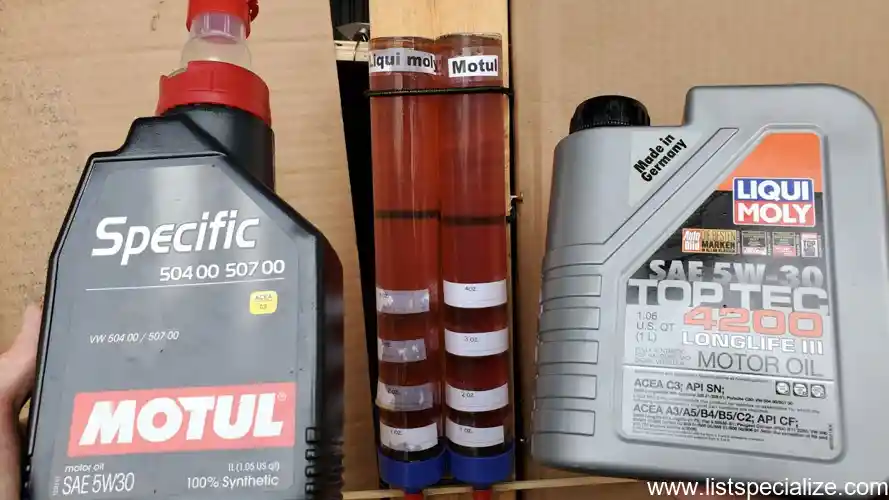
Certifications and approvals are like the gold stars of the oil world – they signify that a product meets or exceeds certain industry standards. When it comes to comparing Liqui Moly vs Motul, both brands have a long list of certifications and approvals from leading organizations like the American Petroleum Institute (API), the International Lubricant Standardization and Approval Committee (ILSAC), and the German Association of the Automotive Industry (VDA). These certifications not only ensure the quality of the oil but also its compatibility with various vehicles. By choosing an oil that carries these certifications, you can rest assured that it will perform as expected and won’t damage your engine.
Significance of oil certifications and approvals
When it comes to choosing the right oil for your vehicle, you want to be sure you’re getting a quality product that meets the specific needs of your engine. That’s where certifications and approvals come in. These independent endorsements provide assurance that an oil has been tested and meets certain standards. Both Liqui Moly and Motul have earned a range of certifications and approvals from leading automotive organizations, including the American Petroleum Institute (API) and the International Lubricants Standardization and Approval Committee (ILSAC). These certifications attest to the quality and performance of their oils, giving you peace of mind that you’re using a product that’s safe and effective for your vehicle.
Certifications and approvals held by Liqui Moly and Motul
Certifications and approvals are crucial when it comes to selecting the right oil for your vehicle. They serve as independent endorsements of an oil’s quality and compatibility. For instance, both Liqui Moly and Motul have earned impressive certifications, including those from renowned organizations like the American Petroleum Institute (API) and the German Association of the Automotive Industry (VDA). These certifications assure you that their oils meet or exceed industry standards and are compatible with a wide range of vehicles. Moreover, specific approvals from leading car manufacturers, such as BMW, Mercedes-Benz, and Porsche, further underscore the quality and compatibility of these oils. By choosing oils with the right certifications and approvals, you can rest assured that you’re investing in products that have been rigorously tested and proven to perform at the highest levels.
Implication of these certifications for vehicle compatibility
Certifications and approvals act as a quality seal, assuring you that the oil you’re pouring into your vehicle meets the specific requirements set by automakers. They confirm that the oil has undergone rigorous testing and complies with established industry standards. Checking for certifications and approvals is essential to ensure compatibility with your vehicle. Liqui Moly and Motul both hold several prestigious certifications, including those from the American Petroleum Institute (API), the International Lubricants Standardization and Approval Committee (ILSAC), and various Original Equipment Manufacturers (OEMs). These certifications serve as an indicator of the quality and reliability of their products, giving you peace of mind that you’re making an informed choice for your vehicle’s maintenance.
Cost Factor: Evaluating Value for Your Investment
When it comes to making a wise investment in your vehicle’s performance, understanding the cost factor plays a pivotal role. Liqui Moly and Motul, both renowned brands in the automotive industry, offer a range of oils that vary in price. The cost of an oil is influenced by several factors, including its formulation, the manufacturing process, and brand recognition. As you navigate the options, it’s crucial to evaluate the value proposition of each oil, considering its performance capabilities, longevity, compatibility with your vehicle, and the level of protection it provides. By carefully considering these factors, you can make an informed decision that not only meets your budget but also ensures the optimal performance of your vehicle.
Pricing comparison between Liqui Moly and Motul
The cost of motor oil is a significant factor to consider when making a purchase. Liqui Moly and Motul offer a range of oils at varying price points, so it’s essential to evaluate the value you’re getting for your investment. Consider the size of the container, the oil type (synthetic or mineral-based), the specific additives included, and the brand reputation. Compare the prices of similar products from both brands to make an informed decision. Remember that while you may save a few dollars by opting for a cheaper oil, it’s crucial to prioritize quality and performance over cost. A high-quality oil can extend the life of your engine and potentially save you money on repairs in the long run.
Factors influencing oil price
The price factor looms large when comparing Liqui Moly and Motul oils. Liqui Moly products generall, sit at a higher price poit than their Motul counterparts. This pricing disparity stems from factores like brand recognition, research and development investment, and the use of premium base oils and additives. However, it’s crucial to remember that price alone should not dictate your choice. Consider the specific needs of your vehicle and your driving habits. If you’re looking for maximum protection and performance regardless of cost, Liqui Moly may be the better option. But if you’re on a tighter budget, Motul offers a great balance of quality and value. Ultimately, the best way to determine which brand provides the best value for you is to weigh the cost against the benefits each one offers.
Tips for maximizing value while purchasing oils
When it comes to evaluating the value of Liqui Moly and Motul oils, cost is a crucial factor to consider. Liqui Moly oils tend to be more expensive than Motul oils, but this difference in pricing often reflects a disparity in the quality and performance of the additives used. Liqui Moly oils often incorporate more advanced and specialized additives that enhance engine protection, reduce friction, and improve overall performance. While Motul oils may be more budget-friendly, they may not offer the same level of comprehensive protection and performance benefits as Liqui Moly’s premium formulations. Ultimately, the decision between Liqui Moly and Motul boils down to your specific needs and budget. If you prioritize exceptional engine protection and performance, Liqui Moly may be the better investment despite its higher cost. However, if you’re on a tighter budget and willing to compromise slightly on performance, Motul oils can still provide adequate lubrication and protection for your vehicle at a more affordable price.
Q1. Which brand is better between Liqui Moly and Motul?
Ans: Both brands are reputable and offer high-quality products.
Q2. What are the key differences between Liqui Moly and Motul?
Ans: Liqui Moly is known for its wide range of products and additives, while Motul focuses on high-performance oils and lubricants.
Q3. Which brand is more suitable for high-performance vehicles?
Ans: Motul is generally preferred for high-performance vehicles due to its focus on performance and protection.
Q4. How does Liqui Moly compare in terms of pricing?
Ans: Liqui Moly is typically more affordable than Motul, offering value for money.
Q5. Which brand has a better reputation for customer satisfaction?
Ans: Both Liqui Moly and Motul have positive customer feedback, indicating high levels of satisfaction.
Q6. What is the availability of Liqui Moly and Motul products?
Ans: Liqui Moly has a wider global distribution network compared to Motul.





